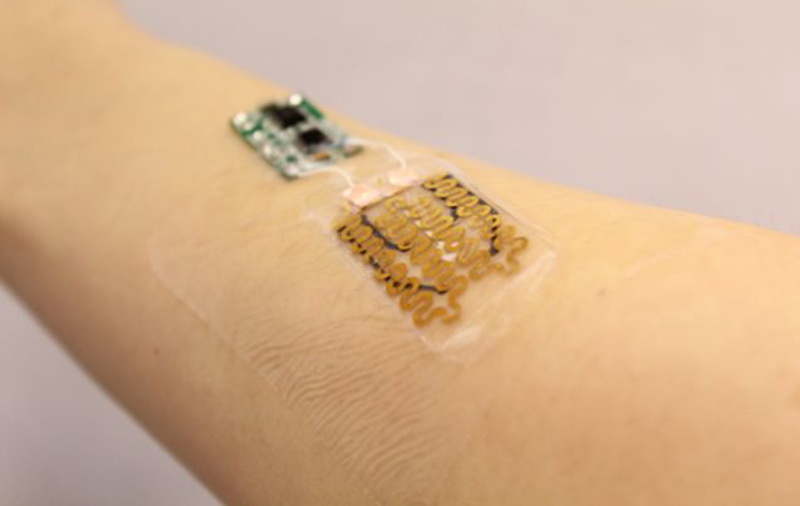
Chronic wounds are a major health issue affecting tens of millions of people worldwide. While some bandages today are embedded with medicine to treat wounds, scientists have something much more advanced in mind for the future of chronic wound care – smart bandages.
Smart bandages have pH sensors embedded in them, and they electronically deliver medication with spatial and temporal control over the wounded area. Scientists are also making new materials similar to human skin, called hydrogels.
Read more Medical Smart Fabric Market Shows Noteworthy Growth by Strong CAGR Up To 2027
Researchers at various companies and institutions are working on smart bandages to make wound healing faster and more effective.
Researchers at Harvard and McGill universities have created a mechanotherapy bandage that actually works to close the wound, keeps it protected from microbes, and speeds up healing much faster than existing products. According to the researchers, the new approach dubbed “active adhesive dressings” (AADs), may soon be available at a pharmacy near you, reports MedGadget.
3M, a leader in the field of adhesives, now offers a variety of products designed for medical applications. The company which has been in the medical adhesive business for over 55 years, offer transparent adhesives, silicone adhesives, smart adhesives and a range of other solutions.

MIT engineers have created stretchable photonic fibers that change color in reaction to pressure. The researchers believe this invention could lead to production of color-changing bandages that allow healthcare professionals to easily recognize if the bandage is tight enough or too tight.
KOB (KARL OTTO BRAUN), a pioneer in medical textiles, offers an extensive portfolio of medical textiles for direct use or for further processing into smart medical textiles. Textiles can be coated and functionalized in KOB‘s own finishing division. Regardless of the type of smart textile-based application, KOB’ experience and expertise enable them to produce the right textile.
Read more How Smart Patches and Smart Pills Are Changing Health Monitoring and Drug Delivery
A team of researchers from Tufts University, Harvard Medical School, and Purdue University have shared a prototype of a smart bandage that can monitor chronic wounds and deliver drugs to improve healing. This technology would efficiently transform bandages from a passive form of treatment into an active part of the healing process. The bandage has been built for chronic skin wounds resulting from burns, diabetes, or other non-traumatic conditions. Diabetes and burns can cause chronic skin wounds, which often results in infections that lead to amputations.
With the advancements in healthcare technology, we can safely say that in the near future, even your bandages could be powered by technology.











